June 4, 2025 | 03:07 GMT +7
June 4, 2025 | 03:07 GMT +7
Hotline: 0913.378.918
June 4, 2025 | 03:07 GMT +7
Hotline: 0913.378.918
“No matter how the world changes, Vietnam stands firm in its commitment to carbon neutrality by 2050.” Prime Minister Pham Minh Chinh made this statement last week at the virtual Climate Action Summit, speaking as the leader steering Vietnam’s implementation of the Just Energy Transition Partnership (JETP).
Addressing leaders of major economies, the Prime Minister stressed: “Although Vietnam remains a developing country with an economy in transition and limited resources, we have begun to deliver positive results. Vietnam now leads ASEAN in renewable energy supply, sets a strong example of promoting sustainable green agriculture, and acts as an active, responsible member of most major multilateral mechanisms and initiatives on green growth and energy transition."
The virtual Climate Action Summit gathered 17 heads of state and government from the world’s largest economies. They agreed to submit stronger national climate action plans, known as the third updated Nationally Determined Contributions (NDCs), ahead of the 30th Conference of the Parties to the United Nations Framework Convention on Climate Change (COP) in Brazil in November 2025.
Vietnam’s confidence rests on solid achievements. In agriculture, Vietnam has launched the large-scale production of 1 million hectares of high-quality, low-emission specialized rice project. The country continues to maintain strong forest coverage. In energy, by the end of 2024, Vietnam’s power capacity will lead ASEAN, reaching 82.4 GW, with wind and solar power contributing 26% (and hydropower sources pushing renewable energy to over 50%).
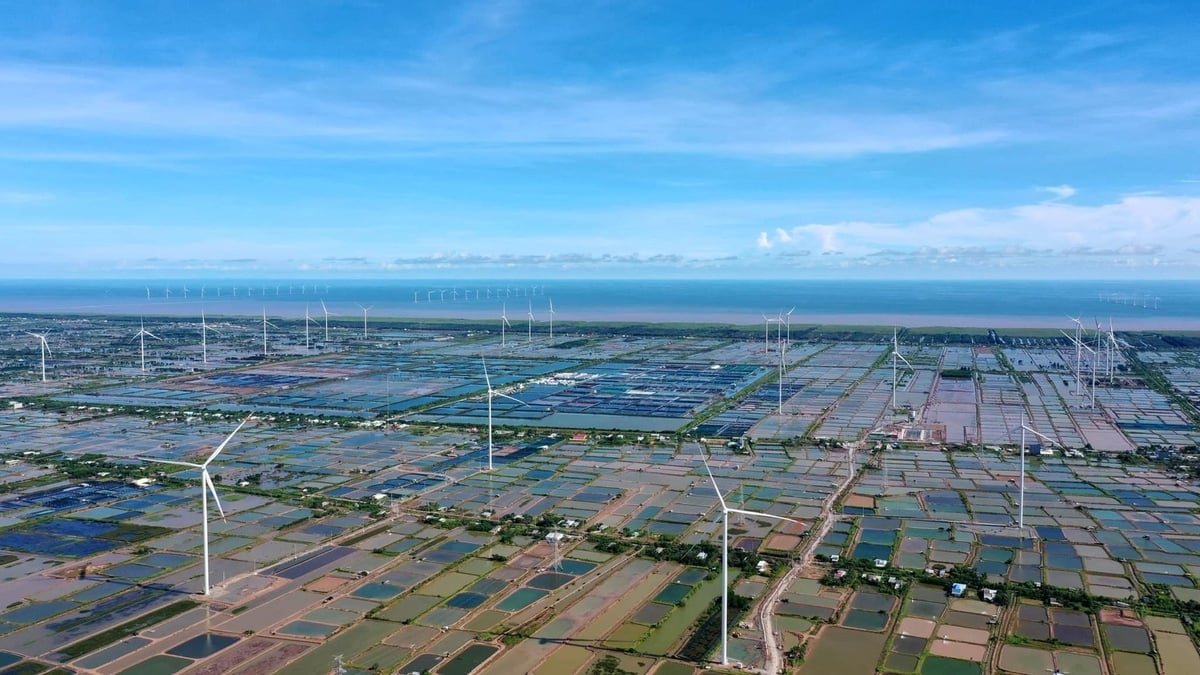
Vietnam aims to have 75% renewable energy in its power system and become carbon neutral by 2050. Photo: Trung Nguyen.
While some countries are embracing coal power to cope with the energy crisis, Vietnam is committed to reducing its coal power capacity according to the set roadmap and continuing to increase its renewable energy sources. With the revised Power Plan VIII announced in early April 2025, Vietnam aims to have a total electricity capacity of approximately 90-100 GW by 2030, of which renewable energy sources (excluding hydropower) are expected to account for around 28-36%.
Notably, through the assessment of the power development plan for the period up to 2025, the progress of onshore wind power, hydropower and solar power projects has reached less than half, while significant power sources (LNG power and offshore wind power) are expected to operate by the end of 2030 and the beginning of the following period. To ensure power supply for the years 2026-2029, the Government decided to accelerate investment in small hydropower, wind power, solar power, storage batteries and flexible thermal power sources compared to the previous roadmap.
Specifically, flexible power sources are expected to reach 2-3 GW by 2030, a 10-fold increase from the modest figure of only 300 MW in Power Plan VIII. Similarly, battery energy storage systems (BESS) are expected to reach approximately 10-16.7 GW. Additionally, pumped storage hydropower is expected to increase in scale from 2.4 GW to 6 GW.
Mr. Nguyen Anh Tuan, Vice President and General Secretary of the Vietnam Energy Association, acknowledged that these are new types of service system investment and also new opportunities for many investors, both domestic and foreign.
These power sources are all important components of the power system's auxiliary services, enabling the efficient operation of wind and solar power, which are often unstable and cause instability to the system. This contributes to the construction of an innovative national grid system capable of integrating and operating large-scale renewable energy sources safely and effectively.
By 2050, Vietnam’s total national electricity capacity is expected to reach 205-228 GW, with the proportion of renewable energy in the country’s electricity system reaching 75%.
In the coming years, thermal power plants and large emission-emitting production facilities will be allocated annual emission quotas and will be pioneers in participating in the domestic carbon market from the pilot phase, starting in 2025.
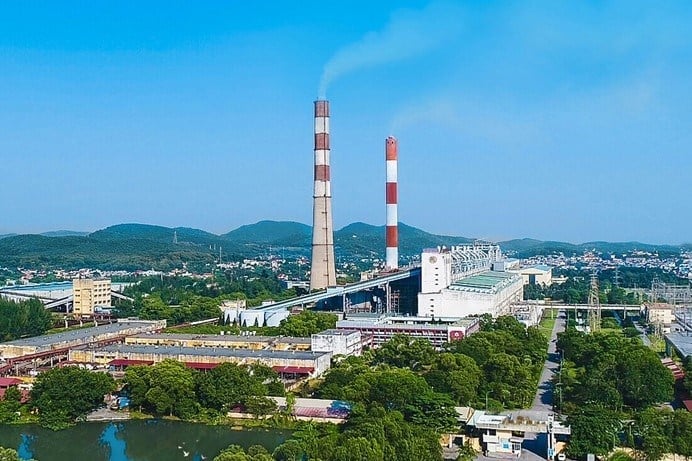
Thermal power plants will be allocated emission quotas each year.
The power source development plan still aims to achieve the target of controlling greenhouse gas emissions from power production to approximately 204-254 million tons in 2030 and approximately 27-31 million tons in 2050. Emissions from the power sector are expected to peak in 2035, then gradually decrease to comply with the roadmap to eliminate coal power and contribute significantly to Vietnam's carbon neutrality commitment. In 2050, CO2 emissions from the power sector will only come from gas power sources.
Identifying energy as the lifeblood of the economy, the driving force for green economic transformation and sustainable development, the Government is working with ministries and branches to gradually remove obstacles and introduce new, breakthrough mechanisms in the energy sector.
In the immediate future, there will be orientations in the revised Power Plan 8 and the upcoming Implementation Plan with specific tasks for each ministry, branch and locality. Prime Minister Pham Minh Chinh affirmed: Promoting the spirit of 3 readiness – “ready to participate, ready to accompany, ready to lead” – Vietnam will continue to be a good friend, a reliable partner, and an active, responsible member of the international community on the upcoming green and sustainable development path.
The assessment of climate change response efforts indicates that the world has not taken sufficient action to limit global temperature increases to 1.5 degrees Celsius or less by the end of the century. In 2025, nearly 200 countries participating in the Paris Agreement on global climate change will make new commitments and new targets on reducing greenhouse gas emissions and adapting to climate change for the period 2025-2035.
Translated by Quynh Chi
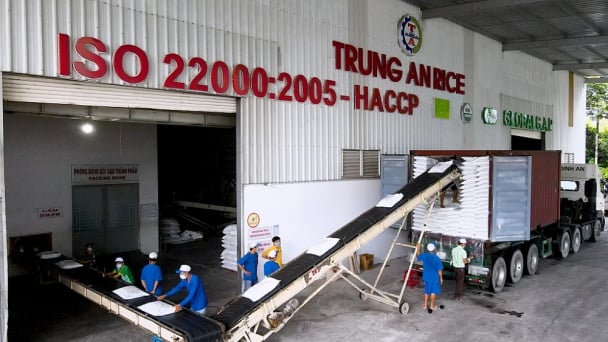
(VAN) On June 5, in Can Tho City, the Vietnam Rice Industry Association (VIETRISA) and Trung An Company will hold a ceremony to export the first shipment of 'Green and Low-Emission Vietnam Rice' to Japan.
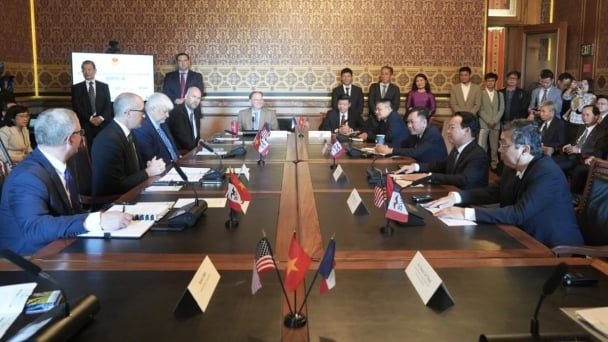
(VAN) Minister Do Duc Duy believes this event will mark the start of a new chapter in deeper cooperation between Vietnam’s agricultural sector and the state of Iowa.
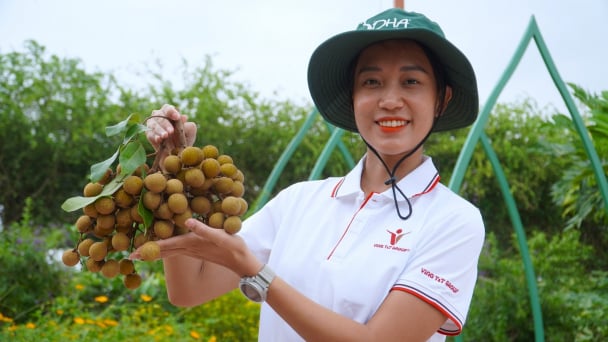
(VAN) Once merely a fruit found in local markets, Thoi Hung longans are now featured on supermarket shelves in the United States and Australia under the brand 'King Longans' – the king of longans.
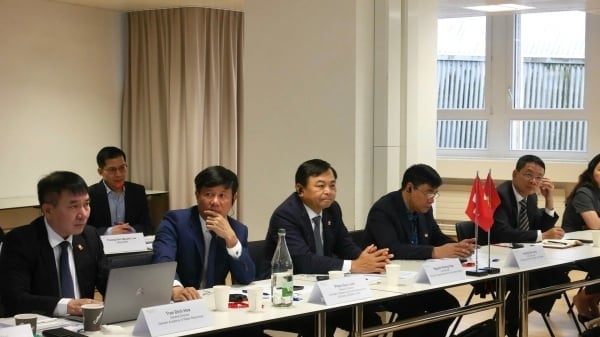
(VAN) On June 2, Deputy Minister Nguyen Hoang Hiep worked with the Swiss State Secretariat for Economic Affairs, the Swiss Agency for Cooperation and Development and Head of Infrastructure Financing Dagmar Vogel.
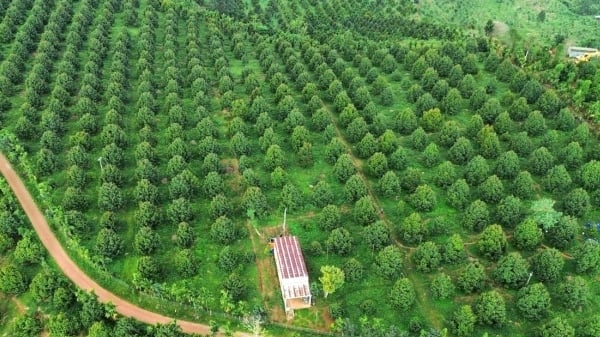
(VAN) The Prime Minister assigned the Minister of Agriculture and Environment to direct localities to review and fully prepare the necessary conditions (such as crop varieties, livestock, materials, fertilizers, etc.) for production.

(VAN) On June 1, a grand meeting was held in Ha Long city, Quang Ninh province, to celebrate World Environment Day and launch the National Action Month for the Environment 2025.

(VAN) From the meeting in Ha Long, the United Nations called for the establishment of a legally binding global treaty to end plastic pollution.